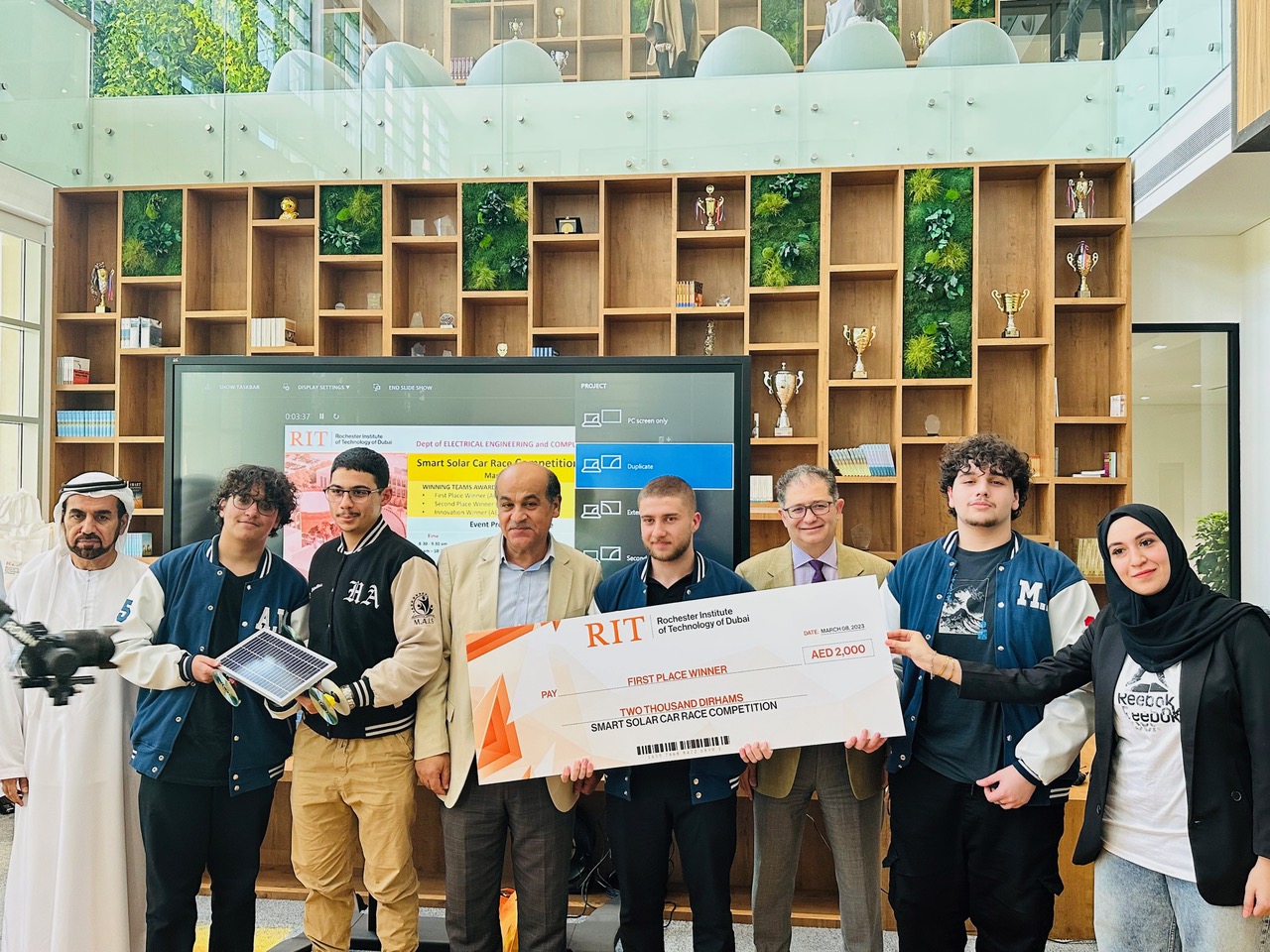Rochester Institute of Technology (RIT) Dubai has hosted its inaugural smart solar car race for high school students to showcase their innovative designs for vehicles powered solely by the sun. Assessed on their car’s speed, engineering, creativity, and sustainability, 30 teams of students from 15 high schools across the UAE competed in the race, which was won by Modern American International School.
Staged at University’s campus in Dubai Silicon Oasis, the competition challenged students to design and construct a vehicle capable of completing a 20-meter racetrack, using one motor and one solar panel, within specific dimensional restrictions. Organized by the University’s Department of Electrical Engineering and Computing, the event aimed to motivate high school students to explore science and engineering challenges, and to increase their awareness of sustainable energy resources.
Welcoming the students to the competition, RIT Dubai Provost – Vice President Academic Affairs, Dr. Khalid Khawaja, said, “Innovation and entrepreneurship are now the foundations for every field of business, they are disciplines that we teach in every program, and by taking part in this competition, everyone here today has already started on that journey. Thinking outside the box and exploring new ideas in design thinking are skills that will be invaluable in your future studies and ultimately your chosen career.”
Technology enthusiasts from as young as 13-years-old then took to the track to showcase their designs and test their smart, sustainable vehicles in front of a panel of academic and industry judges. Taking second place overall in the competition was a team from Applied Technology High School, while the innovation prize was awarded to student from GEMS United Indian School.
With a one-of-a-kind design that drew attention among fellow competitors and judges alike, Year 12 Modern American International School students, Muhammad Rashad, Ahmad Raed, Mustafa Al Mosawi, and Hamza Ahmad were awarded the AED 2000 first prize. Taking their inspiration from the Masdar car, the winning design incorporated wheels made from compact discs to keep the vehicle lightweight, and to limit any resistance from the track barriers. The car completed the 20-meter course in 10.8 seconds, making it the clear winner among the field.
Speaking after the event, the team’s mentor and programming instructor Ms. Areej Al Banna said, “This is the first time that these students have been part of a competition as a team, and they have shown great enthusiasm and dedication to the challenge. The race was a test of a whole range of scientific skills and their design reflected both their technical and creative talents.”
Explaining the thinking behind the competition, Dr. Muhideen Amer, Chair of the Department of Electrical Engineering and Computing said, “This is an important event for our community that we’d like to see repeated every year with different themes. The interest in renewable energy solutions is clearly high amongst high school students and I was thrilled to witness a display of innovative approaches from young scientists. They used creative ideas to construct solar-driven vehicles, even given the design constraints and the limited solar energy they can harvest without storage, they successfully achieved the design objectives.”
Organizer of the competition, Professor of Electrical Engineering, Dr. Abdulla Ismail, said, “As the first event of its kind here at RIT Dubai we have been amazed by the interest and engagement of high school students in this competition. The participants showcased their creative and scientific skills to develop smart technology solutions powered by green energy, demonstrating that the talent we need to achieve our goals for a green economy is growing among the country’s youth. We look forward to welcoming these students back for future competitions and to explore their higher education options.”
The event concluded with a tour of the University’s sustainability-driven campus, including the RIT Dubai Smart Energy Lab, the UAE’s largest facility of its kind to focus on the application of smart grid technology.

